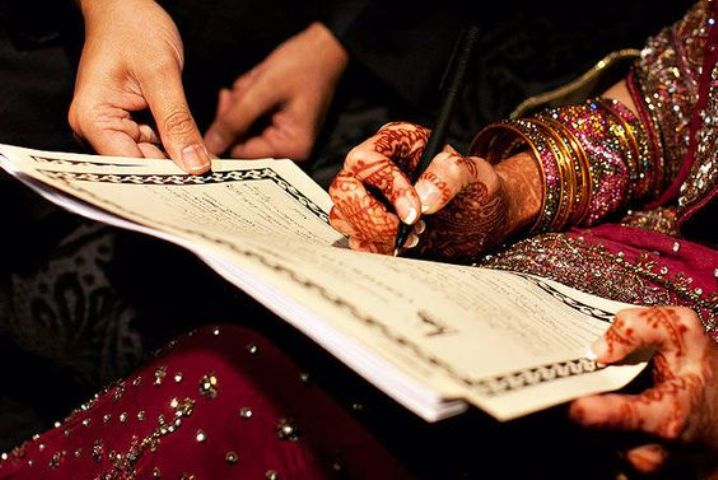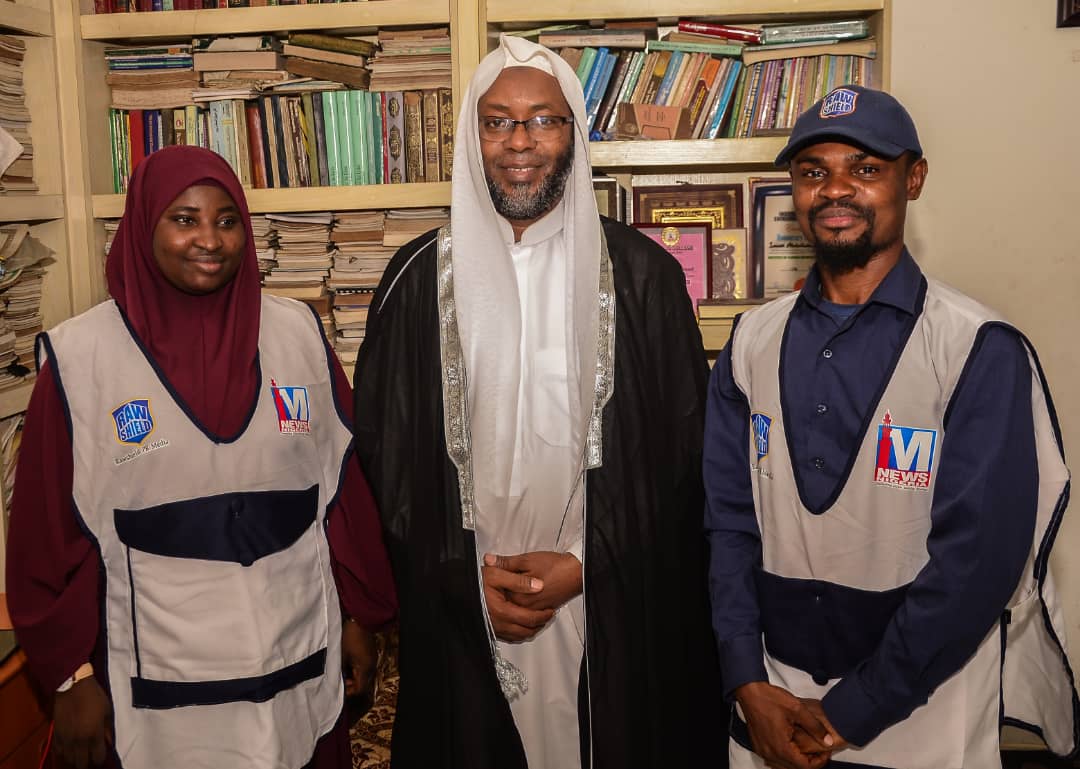1: Dear brethren, we must learn to relate with issues, analyse their evidence and apply them into reality.
True fiqh (understanding of Islam) is not what is copied from books, because books represent the reality of its time, rather, true Fiqh is the jurist’s own ijtihad (intellectual exertion) to produce something suitable for his specific time and place, just like the forebearers have exercised ijtihad suitable for their time and place.
Even if we see an evidence of prohibition against such deed, we will still need to study how to relate such evidence to our reality. That is what we call إنزال النص على الواقع.
2: Let’s reiterate what we have said earlier, that the Prophet and the sahaabah (companions) were not reported to have engaged in an act sometimes, is not an evidence, for the abstinence of the sahabah doesn’t indicate haram, it only indicates the permissibility to abstinence.
Imam Malik would abstain from riding in Medina in respect and love for the Prophet and yet none of the Sahabah did that. This is because the Prophet and the sahaabah would not remain silent on what is prohibited. Likewise, the Prophet said: Allah remained silent on some issues, a mercy and favour for us, we shouldn’t further elicit questions about them.
و سكت عن الأشياء رحمة لكم غير نسيان….
So far the issue is not an act of ibaadah.
3: Let us get the definition of what we are placing a ruling on before making a ruling on it.
Changing your surname to that of your husband’s family name is not claiming that he gave birth to you; it is not a claim that he is your father, or when you change your surname to that of your husband, do you claim he is your father? Do you make love with your father? Even the intellect denounces such.
The change of name is a traditional issue which is subject to customs, not only in Nigeria, even outside Nigeria, same applies while some do not regard it as necessary. It is also the same tradition of ours to make use of one’s grandfather’s name as one’s surname, are you claiming your grandfather is your biological father? No. It is just our tradition. While the Arab will use their direct father’s name as surname and write their own names first, in our own custom, we write the surname first.
4: Those who ‘erroneously’ consider using the husband’s surname as haram will put forth the verse in suratu mujaadalah as an evidence.
In Qur’an 58 verse 2, Allah says:
“(As for) those of you who put away their wives by likening their backs to the backs of their mothers, they are not their mothers; their mothers are none other than those who gave birth to them; and most surely they utter a hateful word and a falsehood and most surely Allah is Pardoning, Forgiving.”
This verse was revealed in the case of Aws bn Saamit who divorced his wife (Khaulah bint Tha’labah) through a jahiliy form of divorce called ‘Az-Zihaar (الظهار)’. Zihaar is a form of divorce in the jaahiliyyah period and this verse was revealed as an abrogation to the practice. Then Allah established At-Talaaq with its principles.
How did Arab pronounce this Zihaar then? They would say to their wives:
‘ أنت علي كظهر أمي’
‘You are like my mother’s back to me’.
Meaning: “You are prohibited for me to move close to”. If he pronounces this, then automatically, the wife has been divorced. That was what Aws bn Saamit did, he likened Khaulah’s back to that of his mother, after which Khaulah cried to Allah (wa teshtekii ilaa Allah…)
This scenario cannot be used as evidence against changing one’s wife’s surname to that of her husband. Allah is specifically addressing the divorce of jaahiliyyah, known as Zihaar, which was later abrogated with provision of Talaq and it’s principles. Hence, there is no significant relationship between this event and women using their husbands’ surnames. Or, if I may ask, how does a woman using her husband’s name/surname mean the same thing as likening her back to his mother’s? Or how does it translate into him divorcing her? All these make us understand that such qiyaas (analogy) is an off-handed one (قياس مع الفارق). Thus, we cannot use this verse as an evidence against.
5: The same as explained above goes inline with the verse 5 of suratu Al Ahzaab where Allah says:
(ادْعُوهُمْ لِآبَائِهِمْ هُوَ أَقْسَطُ عِندَ اللَّهِ….)
(Assert their relationship to their fathers; this is more equitable with Allah;…..)
This verse was revealed on the issue of Zayd bn Haarithah whom people would call Zayd bn Muhammad. This verse was revealed as an abomination against asserting a child to who isn’t his rightful father. Zayd wasn’t the son of the Prophet.
Imam Tabari and Qurtubi in their tafseer books respectively explained that people were regarding Zayd as a son to the Prophet by calling him Zayd bn Muhammad because he adopted him, and Qurtubi buttressed the ‘Ibnu’ is mostly the reason for the legislation, which means if the word ‘ibnu or bintu’ should be used, the biological father’s name must follow, not even the family’s surname (as said in the 8th point of this article). But, here in the case of a wife changing her surname to that of her husband’s family name, she isn’t claiming the owner of the name as her father, neither through adoption nor biological means.
And Imam Qurtubi mentioned the case of Miqdad bn Aswad whose father was actually Ammar but still called the former just for identification…
6: And in cases where the husband calls his wife “Mummy” , “my daughter”, jokingly and with a sense of conjugal affection, even though such appellations may not necessarily be romantic, ‘my baby’ is still romantic, but is he or she actually your baby suckling you? Without doubt the answer is NO. The intended meaning is just for fun and romance. In this case, there is no Islamic prohibition.
Also, the circumstances where there is a clear cut prohibition in joking are stated as follows:
A: You are asked at the sitting of your nikaah, if you were forced to marry so so and so? And you answered No, I wasn’t forced, later you came to say, No, I was only joking with that answer.
B: When you divorce your wife and later come back to inform us that you were only joking with the divorce, there is no joking with such affair.
C: When you take your divorced wife back while she is still in her iddah, which is called Ar-Ruj’ah, then you later said you were only joking, you don’t mean to receive her back.
These are the three forms of things the Prophet said you don’t joke with in your marriage. Even if you intend jokes, you will be taken seriously.
He said:
“ثلاث جدهن جد وهزلهن جد: النكاح والطلاق والرجعة.”
But other cases, the default ruling is permissibility.
7: Coming to our own country Nigeria, where you will need to change your surname to that of your husband’s. This is not in anyway a doruurah. it is a fundamentally permissibie act for you to get certain opportunities. Like in the case where you need to present your marriage certificate for your NYSC, you must include or state your husband’s (sur)name along with yours. Also in some government offices you use Mrs ….. (your husband’s surname). On your international passport, some countries will not regard you as his wife if you aren’t using his surname, and if you present your marriage certificate, it will be an evidence against you. And this may deny you some opportunities.
This is not peculiar to Nigeria alone. In some Arab countries, if you have the iqaamah (residency permit) of the country and you intend inviting your wife over, for your wife to rely on your residency permit, her surname must concur or cohere with yours or else, you will not be regarded as legally married.
Moreso, we need to put into consideration, the definition and meaning of the acronym “MRS”. There are meanings (insinuating the “MRS” to mean “the family the woman is married into”) insinuating that the woman is related to the man she’s married to. But since we usually use surname which is usually a family name and not necessarily the father’s name, the new wife has become a part of the family, …
8: However, when you are using “Bint (the daughter of)”, this clearly shows you want to attribute yourself to your biological father, then you must make use of your father’s name, E.g: you say Aa’ishah Bint Muhammad. And if your husband’s surname is Ajao, you won’t say Aa’ishah Bint Ajao otherwise, you are attributing yourself to your grandfather/father – in-law which will make him haram for you to marry, and this is prohibited as the Prophet forbade calling Zayd bn Muhammad.
But in the case where you are making use of Mrs officially, then there is no problem when you use Mrs Ajao or Mrs Ajao Aa’ishah/Aa’ishah Ajao (please the name, Ajao was used merely as an example and does not refer to any specific or known subject).
Thus, we are not saying you must necessarily use your spouse’s surname for official purposes. If you could, you can waive it or you don’t like doing so, no problem. But considering those making use of it as sinners is the challenge. There is no evidence to establish sins on those doing so, it remains permissible.
9: There are instances from the salaf who bear indirect name, for instance Abdullah bn Ummu Maktum, the name Taemiyah is also feminine and some others.
‘In Saheeh Bukhari when Zaynab the wife of Ibn Mas’uud came to seek the Prophet’s attention, it was said to the Prophet that Zaynab is here seeking your attention, he asked: which of the Zainabs? They said: “The woman of Ibn Mas’uud”..’
She was called by her husband’s name.
ﺃﻥ ﺯﻳﻨﺐ ﺍﻣﺮﺃﺓ ﺍﺑﻦ ﻣﺴﻌﻮﺩ ﺭﺿﻲ ﺍﻟﻠﻪ ﻋﻨﻬﻤﺎ ﺟﺎﺀﺕ ﺗﺴﺘﺄﺫﻥ ﻋﻠﻰ ﺭﺳﻮﻝ ﺍﻟﻠﻪ، ﺻﻠﻰ ﺍﻟﻠﻪ ﻋﻠﻴﻪ ﻭﺁﻟﻪ ﻭﺳﻠﻢ، ﻓﻘﻴﻞ : ﻳﺎ ﺭﺳﻮﻝ ﺍﻟﻠﻪ ﻫﺬﻩ ﺯﻳﻨﺐ ﺗﺴﺘﺄﺫﻥ ﻋﻠﻴﻚ ﻓﻘﺎﻝ : ﺃﻱ ﺍﻟﺰﻳﺎﻧﺐ؟ ﻓﻘﻴﻞ : ﺍﻣﺮﺃﺓ ﺍﺑﻦ ﻣﺴﻌﻮﺩ ﻗﺎﻝ : ﻧﻌﻢ . ﺃﺋﺬﻧﻮﺍ ﻟﻬﺎ ﻓﺄُﺫﻥ ﻟﻬﺎ.
10: Then there is the case where the husband imposes his surname on his wife, and that has become a point of disagreement or discord, claiming it’s his right and so she must change it. The wife refused and it led to some other disputes like the husband disrespecting the wife’s family and so on. Why should we disagree over issues that are not fundamental? If he attaches another meaning to it and claims you must change to his surname, why then can’t you nip the unrest in the bud by doing so?!
The Islam brought by Prophet Muhammad is that of tolerance and appreciation of genuine intellectual diversity.
And Allah knows best.
October 6, 2019.
✍ Ibn Taofeeq Abdul Azeez




Alhamdu lillaah ,the content is good I hope our Muslim brothers and sisters will make use of it.